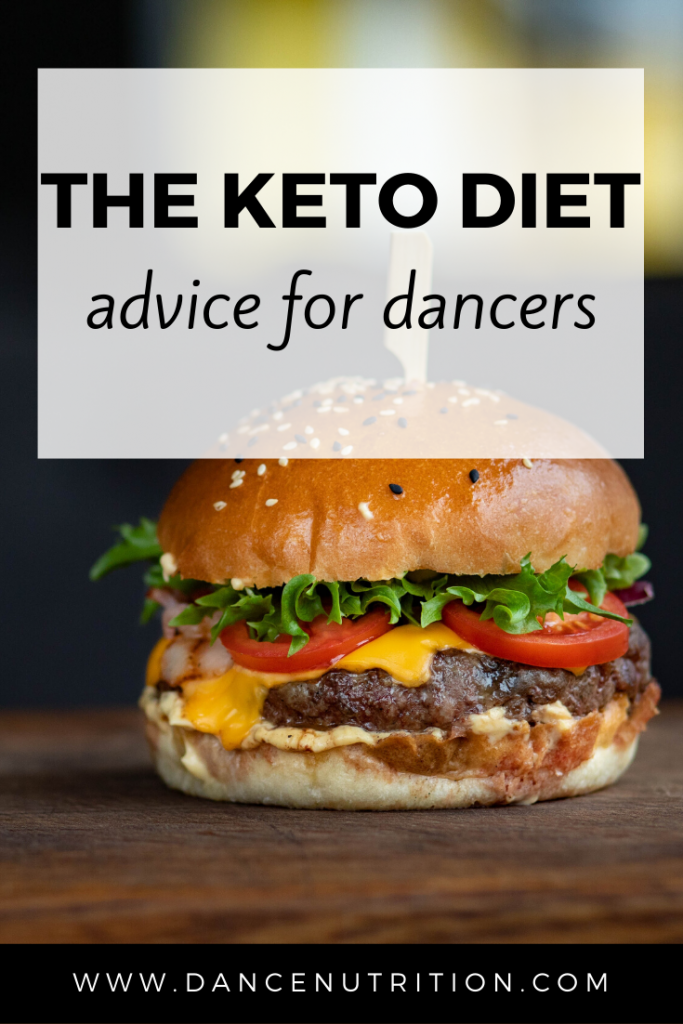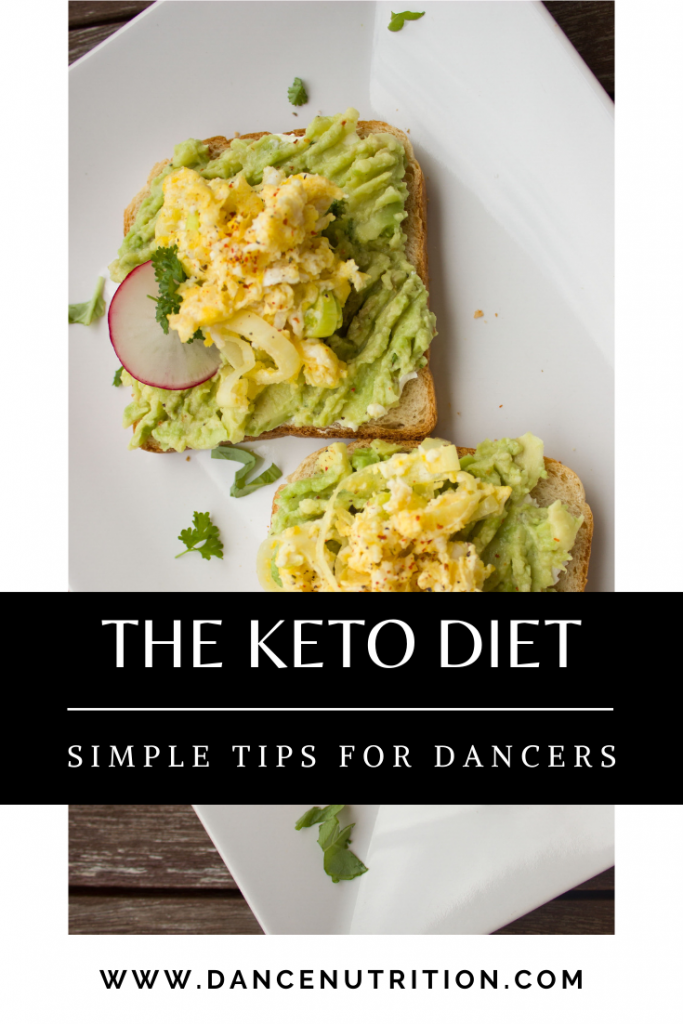What Does It Mean To “Go Keto?”
The ketogenic diet, commonly known as keto, is a high-fat, low-carb eating plan where fat comprises over 75% of your daily calorie intake. The primary goal is to enter a metabolic state called ketosis, where your body burns fat for energy instead of carbohydrates. In this article, we’ll uncover whether the diet is suitable for dancers.
What Is Ketosis?
Under normal conditions, your body uses both carbs (glucose) and fat as fuel sources. Carbohydrates are the body’s preferred energy source because they can be broken down more quickly. Carbs are also the primary energy source for your red blood cells and the nervous system— this includes brain functioning. Your muscles and liver store carbs as glycogen, which your body taps into when it needs a fast energy boost.
However, fat is stored in larger quantities and serves as a long-term energy reserve. This is an evolutionary advantage: our bodies are biologically designed to burn carbohydrates for immediate energy and store fat for later use. Ultimately, your body burns both carbs and fat at differing ratios depending on factors like the duration, speed, and intensity of your movement.
When you enter ketosis, there aren’t enough carbohydrates available to fuel your body. As a result, your liver begins breaking down fat into ketones, which then become your primary energy source. Essentially, your body switches from burning glucose to burning fat. Through this process, amino acids (derivatives from the breakdown of protein and muscle) are also used as fuel.
“I’ll burn more fat? I’m In”
It’s easy to assume that cutting carbs will automatically switch your body into fat-burning mode. Yes, when you reduce carbs and add fat to your diet, your body will burn more fat for energy— it’s most available. But here’s the catch: cutting carbs doesn’t mean your body will only burn fat.
It can lead to a paradox where your body may burn fat but also store more fat, depending on the balance of macronutrients. This is particularly concerning for dancers, as the primary focus is on maintaining muscle mass to meet strength and agility demands. Also, when your diet is primarily comprised of fats, you risk limiting your protein intake, which is crucial for building and preserving muscle.
Additionally, the breakdown products of carbohydrates help with fat metabolism— carbs and fats work together in your body. This is why we often say, fat burns in the flame of carbohydrates. This balance of macronutrients is critical and doesn’t mean your body will never burn fat. The more physically trained you are, the more your body can rely on fat for energy, but you still need carbohydrates to support the process and prevent early-onset fatigue.
Consider These Points Before Going Keto:
#1: You’ll Feel Sluggish
Carbs are the body’s primary fuel for high-intensity workouts. Glycogen, the form in which carbs are stored in muscles, provides quick energy for movements that require speed and explosiveness— like petite allegro, pirouettes or jumps. Without sufficient glycogen, you may notice a significant decrease in your performance, and those fast, dynamic movements will feel harder and more tiring.
#2: Your Digestive Health Could Suffer
A significant downside of the keto diet is its low fiber content. Carbohydrates, especially from fruits, vegetables, and whole grains, are your main sources of fiber, which is essential for healthy digestion. Fiber helps prevent constipation, regulate bowel movements, and support your gut microbiome. Without enough fiber, digestive problems like constipation or irregularity can arise. For dancers, digestive discomfort can directly impact energy levels and focus.
#3: You’ll Miss Key Micronutrients
The keto diet restricts a wide variety of fruits, vegetables, and grains, which are rich in essential vitamins and minerals. Many nutrients vital to overall health, like vitamin C, vitamin A, vitamin K, folate, selenium, and potassium, are found predominantly in carb-rich plant foods. When these are removed from the diet, deficiencies can arise. A lack of these micronutrients could compromise immune function, bone health, and even energy production— affecting both your health and performance as a dancer.
Additionally, the absence of phytonutrients and antioxidants, those abundant in colorful fruits and vegetables, may leave you more vulnerable to inflammation, oxidative stress, and injury.
The Verdict: Keto for Dancers?
There’s no denying that fat is an essential macronutrient. It promotes satiety, supports hormone production, aids in vitamin absorption, and even helps build strong bones. But when it comes to a high-fat, low-carb diet like keto, the benefits are primarily seen in specific medical conditions like drug-resistant epilepsy or Alzheimer’s disease. For athletes and dancers, the scientific evidence supporting keto’s benefits is far more limited.
Instead of restricting carbs entirely, consider adopting a balanced approach. Fat should certainly be part of your diet, but it doesn’t need to dominate every meal. Include fats (such as avocado, nuts, and olive oil), protein (chicken, tofu, or legumes), and complex carbs (whole grains, vegetables, and fruits) in your daily meals to support optimal performance and recovery.
Meals and snacks should focus on balancing these three macronutrients to fuel your body for the demands of dance training while keeping your energy levels stable and your muscle mass intact. In the end, your body needs a variety of nutrients to thrive, so don’t lock yourself into a restrictive diet.




